In the world of designer dogs, few breeds capture the heart quite like the Bichon Poodle. Affectionately known as the Poochon or Bichpoo, this charming blend of the Bichon Frise and Poodle is more than just a cute face. With a personality as delightful as their appearance, Bichon Poodles are rapidly gaining popularity among dog lovers.
Distinguished by their radiant personality and elegant demeanor, Bichon Poodles are more than mere pets. They are companions that bring a unique blend of joy and sophistication into your life. These small, vivacious dogs are known for their intelligence, playful spirit, and an almost intuitive connection with their human families. Their hypoallergenic coats add to their allure, making them a favored choice for a diverse range of dog enthusiasts.
Prepare to be charmed by their endearing qualities and learn why this breed might just be the perfect addition to your life. From their intriguing history to their charismatic temperament, the Bichon Poodle is truly a breed like no other.
TABLE OF CONTENTS
- Bichon Poodle Quick Summary
- Bichon Poodle Overview
- Bichon Poodle History And Origin
- Bichon Poodle Physical Appearance
- Bichon Poodle Temperament And Behavior
- Bichon Poodle Care Guide
- The Most Common Health Concerns Among Bichon Poodles
- How Much Does A Bichon Poodle Cost?
- How To Train A Bichon Poodle Mix
- A Day In The Life Of a Bichon Poodle
- FAQs on Bichon Poodle
- So, Is a Bichon Poodle the Right Dog for You?
- Other Bichon Frise and Poodle Mixes
Bichon Poodle Quick Summary
Bichon Poodle Overview
From Adobe Stock
The Bichon Poodle is a cross between the dainty Bichon Frise and the intelligent Poodle. This hybrid is very popular because of its hypoallergenic coat, beautiful fur, and outgoing personality. As they are too small and fragile to perform a job they are kept solely for companionship. They are excellent at this role though and will want to snuggle with you any chance they get.
Bichon Poodles are outgoing dogs who love everyone they meet. These social butterflies get along well with children, single adults, large families, seniors, and any other animal they meet – they are just excited to meet new friends!
And who would not want to be friends with such an adorable pup?
Their beautiful curls, button noses, and small size give them the appearance of a living teddy bear. It is incredibly hard to resist petting one of these adorable dogs, so do not be shocked if you are constantly being stopped in public by people asking to pet your cute pup. These dogs do have moderate to high grooming needs and require special attention to their diet.
However, overall they are an easy breed to care for, and just about anyone can successfully care for one of these sweet little dogs.
Pros
- Intelligent and easy to train
- Hypoallergenic
- Excellent with kids and other pets
- Affectionate and loving
Cons
- Can suffer from separation anxiety
- Prone to dental complications
- Have a strict grooming routine
- Tend to be yippy/barky
Bichon Poodle History And Origin
From Adobe Stock
A Quick Look at the Parent Breeds
The Bichon Frise is a very old breed that descends from the breed of dog known as the Bichon Tenerife. These pups belonged to the Barbichon breed family (which also includes the Bolognese, Havanese, and Maltese).
These dainty dogs were found on the Canary Islands and eventually made their way to Europe during the 13th century where they became very popular with royals. They eventually found their way to the US where they were recognized by the AKC in the 1970s. They have been popular show dogs and family dogs ever since.
Poodles, on the other hand, were originally bred in Germany as hunting dogs to retrieve waterfowl. These pups became very popular in France and were bred to various sizes such as the Miniature and Toy Poodle. Just like the Bichon Frise, the Poodle made their way over to the US in the 1900s and also became very popular.
The Birth of a Designer Breed
The late 1990s in Australia witnessed the birth of the Bichon Poodle, a hallmark in the era of designer dog breeds. This period was characterized by a growing fascination with creating new breeds that blended the best traits of purebreds.
Not long after their creation, Bichon Poodles made their journey across the Pacific to the United States. Their arrival marked the beginning of a new chapter in the American pet landscape.
From here their popularity grew quickly and now they have a significant following because of their stunning looks and undeniable charm. They are also now a very popular breed because they are a hypoallergenic dog.
Bichon Poodle Physical Appearance
From Adobe Stock
This mix is best known for its teddy bear appearance. Their infectious smile and sweet eyes can melt anyone’s heart. Poochons have short and stubby legs that carry their small compressed bodies. They have adorable round heads and small button noses. This is a dog that always has a joyous appearance that will instantly make you happy.
Size and Build
The Bichon Poodle is a small to medium-sized breed, embodying a delightful blend of delicacy and strength. They typically weigh between 6 to 17 pounds and stand at a height of 9 to 15 inches. They make great lap dogs due to their compact size. Their build is compact yet sturdy, showcasing a well-proportioned body that is neither too fragile nor overly robust.
Coat Characteristics
One of the most distinctive features of the Bichon Poodle is their coat. Usually, they have a solid color such as cream, tan, apricot, brown, or white. Black and grey are much less common coat variations but this color does pop up now and then. Their coat is one of their most memorable features. You can occasionally find them with white markings or a combination of colors in their coat.
Bichon Poodles are covered in thin curls that are perfectly layered.Their fur is medium length but appears short due to the curly nature of their hair. They are a delight to pet because their curls are as soft as can be.
As a bonus, these dogs rarely shed and are considered hypoallergenic.
Bichon Poodle Temperament And Behavior
From Adobe Stock
The Bichon Poodle is renowned for its delightful temperament, characterized by a blend of affection, intelligence, and playfulness.
This breed is often described as cheerful and friendly, making them excellent companions. They inherit a keen intelligence from their Poodle ancestry, which is complemented by the warm, sociable nature typical of the Bichon Frise.
Interaction with Family and Other Pets
These dogs are known for their exceptional compatibility with families. They form strong bonds with their owners and are typically very good with children, often displaying patience and gentleness.
Bichon Poodles also generally get along well with other pets, especially when socialized from a young age. Their friendly demeanor makes them adaptable to various household environments.
Adaptability and Social Needs
Bichon Poodles are adaptable dogs that can thrive in different settings, from apartments to homes with large yards. However, they do have a social nature and require regular interaction with their human family members. They do not do well when left alone for extended periods, as they can develop separation anxiety.
Energy Level and Playfulness
With a moderate to high energy level, Bichon Poodles require regular exercise to stay healthy and happy. This can include daily walks, play sessions, and mental stimulation through interactive toys and games. Their playful nature keeps them young at heart well into their senior years, making them delightful companions for active individuals or families.
Emotional Sensitivity
Bichon Poodles are often quite sensitive to the emotions of their owners. They can pick up on changes in mood and atmosphere in the home, making them empathetic companions. This sensitivity underscores the importance of a stable and loving environment for their overall well-being.
Bichon Poodle Care Guide
From Adobe Stock
The Bichon Poodle, with its unique blend of charm and intelligence, requires a dedicated approach to care and well-being. Understanding their needs is the first step in fostering a long, fulfilling relationship with your Bichon Poodle.
Exercise Needs
A Bichon Frise Poodle Mix gets their energy in small bursts throughout the day. They will quickly become very lively and will happily bounce around but these energy bursts typically only last 5-10 minutes. Because of this, they do not need lots of exercise throughout the day.
Two or three short walks will keep this dog happy. They enjoy getting outside and seeing their friends but they do not have the stamina to go on a long walk or hike like larger dog breeds. These pups should always be walked on a leash. You can use a harness with this breed because they can easily be choked by the tugging of a leash.
This can be running around in the yard, playing fetch, or visiting the next-door neighbor’s dog. They love to play any game you teach them and become very playful during their energy bursts. Children and other small dogs will love their lively nature and can happily play with them until they tire out. They will probably need a nap after such an exciting play session.
Grooming, Oral, and Dental Care
From Adobe Stock
Grooming a Bichon Poodle is the most difficult aspect of caring for them. This dog’s tight curls require extra attention to avoid matting or tangles. These beautiful dogs should be brushed daily to keep their fur free of knots and tangles. Because of the curliness of their coat, you should make sure to brush these dogs gently. Consider wetting their fur to make brushing smoother and less painful.
In addition, they will need to visit a groomer monthly to have their precious curls trimmed and shaped. Without the proper attention of a professional groomer, your dog will likely develop matts or clumps of fur. This will pull on their skin and can be quite painful.
Dental health is especially important for these dogs. Small dogs are prone to developing dental issues such as gum disease or rotting teeth. So it is important to brush your dog’s teeth each day. If they will not let you brush their teeth then you should use dental treats to keep your pup’s teeth free of tartar.
These dogs also need special attention to their eyes. Every day you will need to take a warm cloth and wipe their eyes to avoid excessive tear stains.
Nutrition Requirements
These small dogs tend to gain weight quickly! You must keep a close eye on their diet. They should not be allowed to graze throughout the day and you should limit their eating to twice a day. You can expect this mix to eat about 1½ cups of food each day (depending on their weight and activity level), which is around 500 calories.
They will enjoy eating dry food that is made for small dog breeds with moderate energy levels.This food type typically has less fat and carbs to avoid excessive weight gain, but it will have enough protein to support their active lifestyle.
The Most Common Health Concerns Among Bichon Poodles
Like many mixed breeds, these dogs tend to be quite healthy. However, like other dogs, they are prone to certain health issues. Being aware of these common concerns can help owners provide the best possible care and potentially prevent or manage these conditions more effectively.
Allergies
Bichon Poodles often suffer from various types of allergies, including food, environmental, and contact allergies. These can lead to symptoms like excessive itching, skin redness, and ear infections. Identifying and avoiding allergens, along with appropriate medical treatment, is crucial in managing this condition.
Dental Issues
Dental problems, such as periodontal disease and tooth decay, are common in smaller breeds like Bichoos. These issues can lead to more serious health problems if left untreated. Regular dental check-ups, professional cleanings, and daily tooth brushing are key preventative measures.
Patellar Luxation
A condition where the kneecap slips out of its normal position, patellar luxation causes pain and lameness. This condition can vary in severity and may require treatments ranging from physical therapy and weight management to surgical intervention in more severe cases.
Progressive Retinal Atrophy (PRA)
This degenerative eye disease eventually leads to blindness. Regular veterinary eye exams are important for early detection of PRA, as early intervention can slow the progression of this incurable disease.
Ear Infections
The floppy ears of Bichon Poodles make them susceptible to ear infections, which can be caused by bacteria, yeast, or ear mites. Regular ear cleaning and monitoring for signs of infection, such as redness or odor, are essential for prevention and early treatment.
Joint Issues
Bichon Poodles can be prone to other joint issues, including arthritis and general joint pain, especially as they age. Maintaining a healthy weight, providing joint supplements as recommended by a veterinarian, and ensuring moderate, regular exercise can help support joint health.
How Much Does A Bichon Poodle Cost?
Owning a Poochon involves various costs, and it’s important for prospective owners to understand these before bringing one of these charming dogs into their home.
Initial Costs
- Puppy Purchase: Purchasing a Poochon puppy from a reputable breeder can range from $1,000 to $3,000, depending on factors like lineage and breeder reputation.
- Adult Dog Purchase: The cost may be slightly lower for adult dogs, often between $500 and $2,000, though this can vary.
- Adoption Fees: Adopting a Poochon from a rescue or shelter is generally more cost-effective, with fees typically ranging from $50 to $300. These fees usually cover initial veterinary care.
Ongoing Costs
- Food and Supplies: High-quality dog food, treats, toys, and other supplies can average $50 to $100 per month.
- Routine Veterinary Care: Annual check-ups, vaccinations, and preventive medications can cost around $500 to $1,000 annually.
- Grooming: Due to their coat type, Poochons require regular professional grooming, which can cost $30 to $60 per session, often totaling $300 to $700 annually.
- Pet Insurance: Monthly premiums for pet insurance can range from $30 to $50, depending on coverage options.
Health Care Costs
- Emergency Veterinary Care: Unplanned medical expenses can vary greatly but can easily run into hundreds or thousands of dollars for serious issues.
- Chronic Health Management: For chronic conditions, ongoing medication or treatment can add significantly to annual costs.
Additional Costs
- Training: Puppy classes or obedience training can range from $50 to $200 for basic courses.
- Dog Walking/Pet Sitting: If needed, these services can average $15 to $30 per session.
How To Train A Bichon Poodle Mix
From Adobe Stock
Bichon Poodles are very easy to train due to the agreeableness and intelligence of their Poodle parent. These pups are eager to please and pick up on commands very quickly. Because of this, you can teach this breed lots of dog tricks. This will keep their busy minds occupied and will likely help strengthen the bond between you and your pooch.
It is important to always use positive reinforcement when training this breed. These dogs love to make their owners happy so any sort of punishment or yelling will upset them. They are very sensitive and do not respond well to harsh criticism. They need to have much more mental exercise than physical. Bichon Poodles can easily become bored if they are not being challenged, so make sure you have plenty of ways for them to work out their powerful brains.
Small agility courses can be really fun ways for you to bond with your dog and exercise their mind. You can create little mazes out of plastic tubes and children’s tents. These little dogs love challenging games like this and will happily work their way through complicated mazes. Puzzle toys will also help keep these dogs entertained when you are gone or cannot give them the attention they want.
A Day In The Life Of a Bichon Poodle
Your morning will start with plenty of kisses as your loving Poochon will lick you awake. These pups are bouncy and lively so they will be ready to go early in the morning whether you are ready or not. As you go through your morning expect your Bichon Poodle to be glued to your side at all times. They will happily accept any attention you give them and might let out a little bark if they feel that you are ignoring them.
Your short morning walk will likely include saying hello to all of your neighbors. These social dogs need to greet everyone they see – so make sure you have plenty of time to spare when you take your outgoing pup on a walk. As you get on with your day you will always have a four-legged shadow. These dogs do not like to be left alone so they will be as close as they can be every single minute of the day. If you do leave they will whimper, cry, and bark until you return.
They will spend most of their day playing happily with toys inside or watching the world go by out the window (as long as they are still close to you).They will want to go out on 2 more short walks throughout the day and will probably ask to play fetch in the yard once you have finished working.As the evening comes they will eagerly seek out cuddle time on the couch while you catch up on the latest films. At the end of the day, they will want to curl up beside you in bed and will happily drift off to sleep, ready to start again tomorrow.
FAQs on Bichon Poodle
How long does A Bichon Poodle live?
Like other small breeds, this dog has a fairly long lifespan. The Bichon Poodle usually lives for 12-15 years and some have been known to reach 18 years old.
Do Bichon Poodles get along with children and other pets?
Generally, Bichon Poodles are known for their friendly and affectionate nature, making them great companions for children and other pets. Early socialization and proper training can help ensure they interact well with other animals and family members.
Are Bichon Poodles good for people with allergies?
Yes, Bichon Poodles are often considered good for people with allergies. They inherit the hypoallergenic coat of their Poodle lineage, which sheds very little and produces fewer allergens compared to many other breeds.
Do Bichon Poodles bark a lot?
Bichon Poodles can be vocal, but they don’t typically bark excessively. Training and providing adequate mental and physical stimulation can help manage unnecessary barking.
Are Bichon Poodles suitable for apartment living?
Yes, Bichon Poodles can adapt well to apartment living due to their small size. However, they do require regular exercise and mental stimulation to stay healthy and content.
Can Bichon Poodles be left alone for long periods?
Bichon Poodles are social animals and can suffer from separation anxiety if left alone for extended periods. It’s best to arrange for companionship or dog-sitting services if you need to be away for more than a few hours.
So, Is a Bichon Poodle the Right Dog for You?
Why snuggle a teddy bear at night when you can hold on to a warm puppy that looks the same?
The Bichon Poodle, with its endearing appearance and cheerful disposition, presents itself as an irresistible companion. These dogs are tailor-made for those seeking a pet that thrives on attention and interaction. Their ease of care and adaptability to various lifestyles make them an excellent choice for a wide range of households.
Their sociable personality is a standout trait, endearing them to both friends and strangers alike with their enthusiastic greetings and friendly demeanor. If your home revels in the joy of frequent visitors or bustling family activities, a Bichon Poodle will fit right in, adding to the warmth and liveliness.
However, it’s important to remember that these dogs may not be the best fit for extremely busy individuals or those who are away from home for long periods, as they crave companionship and can develop separation anxiety. Additionally, for those who prefer a more independent or less active breed, the Bichon Poodle’s energy and need for engagement might be overwhelming.
Let us know in the comments section below if you have any questions about this delightful breed…
Similar Breeds
| Toy Poodle |
|---|
From Adobe Stock |
| Price: $1000-$2000 |
| Lifespan: 12-15 years |
| Family Friendly: Yes |
| Size: 6-9 pounds |
| Shed: Low |
| Activity: Medium |
| Maltipoo |
|---|
From Adobe Stock |
| Price: $1000-$1500 |
| Lifespan: 14-16 years |
| Family Friendly: Yes |
| Size: 5-20 pounds |
| Shed: Low |
| Activity: Low-Medium |
Other Bichon Frise and Poodle Mixes
If you’re interested in learning about other Bichon Frise mixes or Poodle mixes, check out the hybrid dog breeds below.
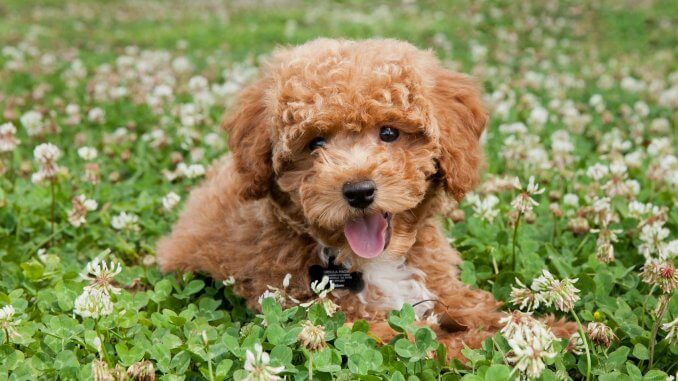
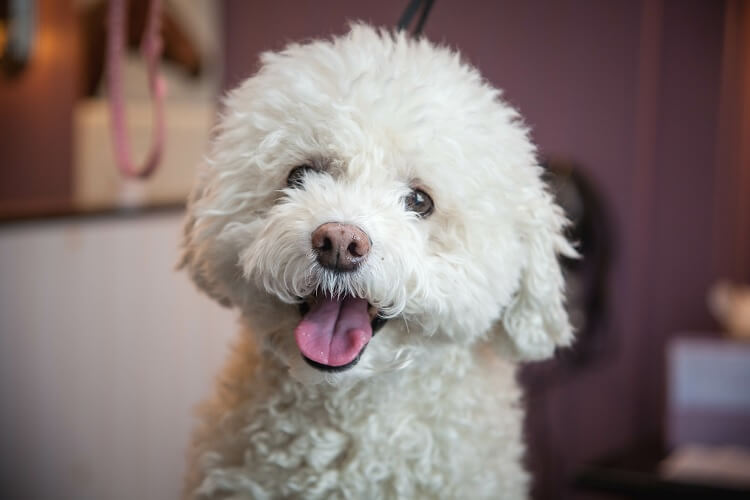
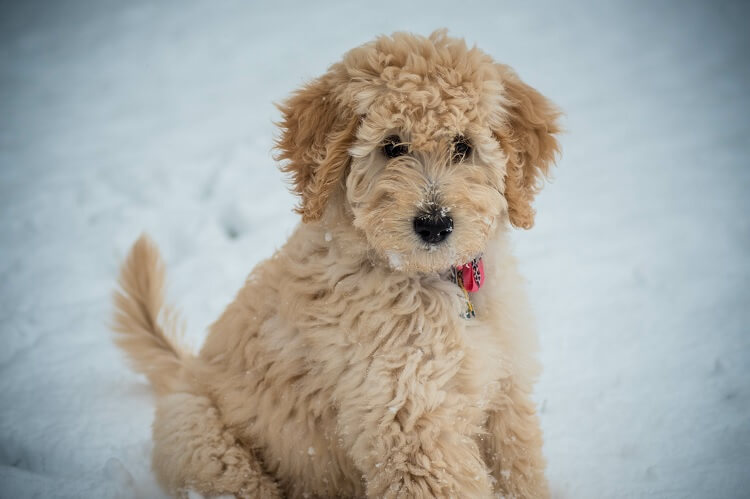
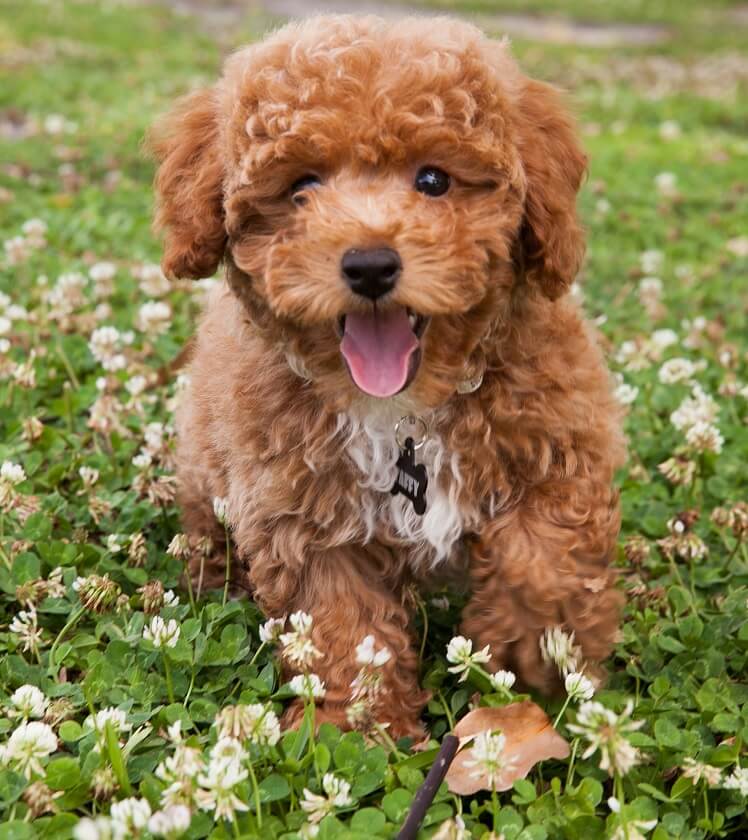
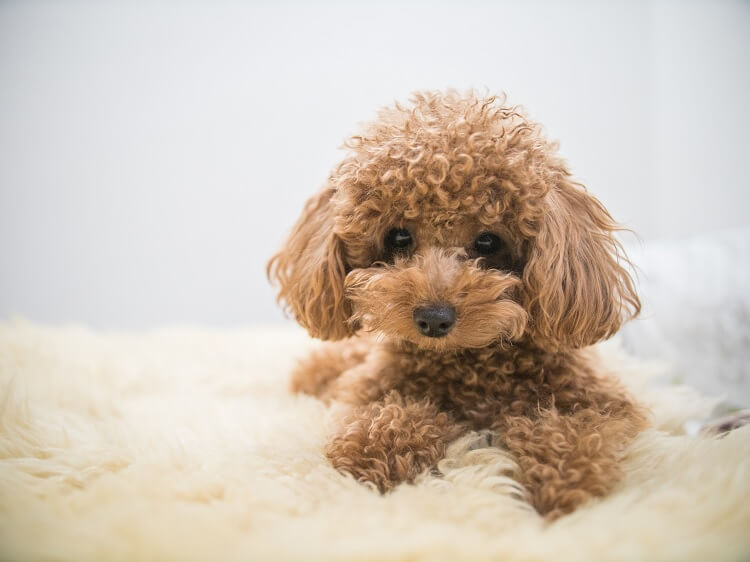
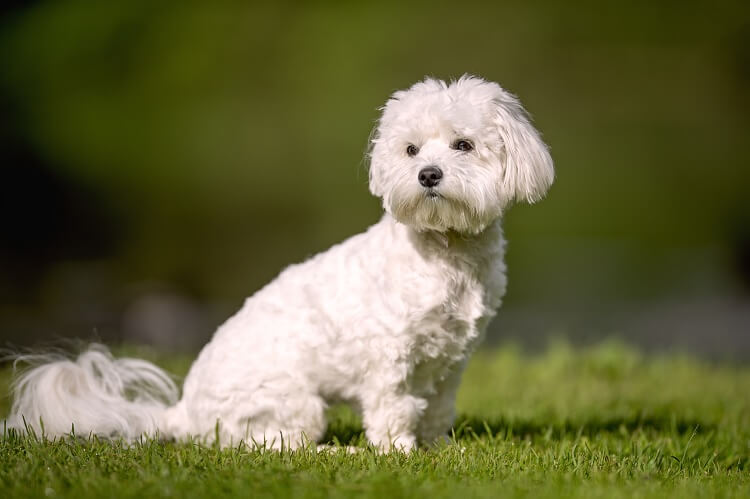
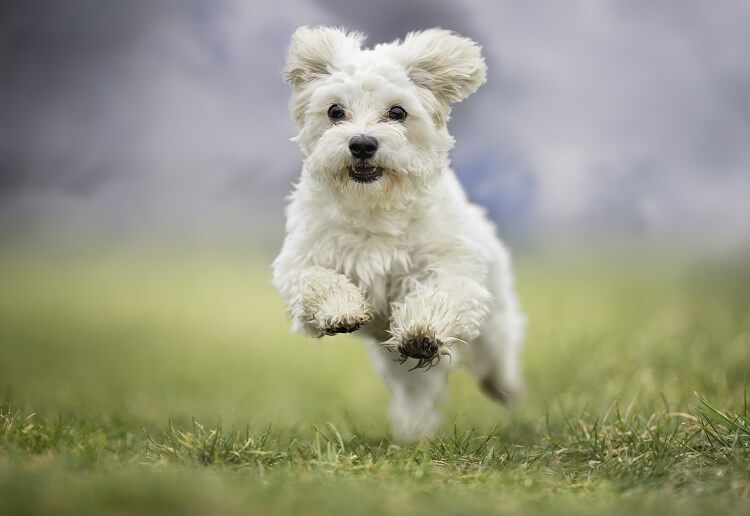
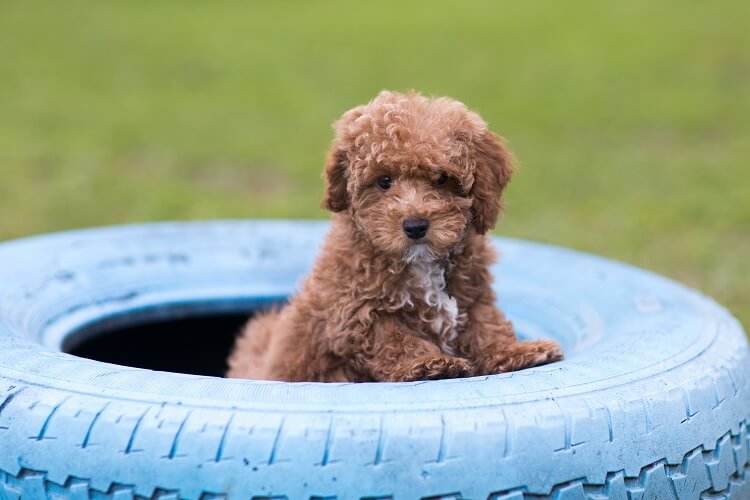
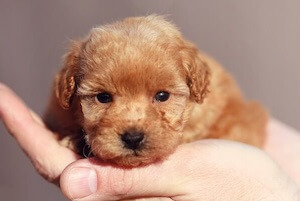
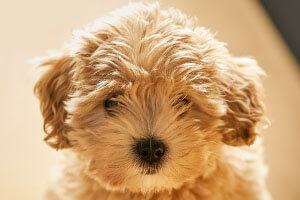

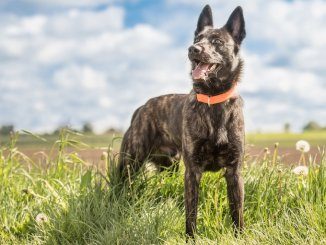
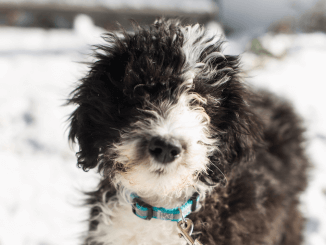
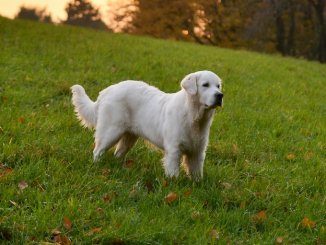
I just purchased a PooChon in November. She is adorable, loving and ready to steal your heart! She’s perfect!
I have the most adorable poochon puppy born in December 18 and so well behaved and intelligent, she fits into our family perfectly and gets on so well with our 10 year old springer spaniel. Everyone loves her, walks take an age as everyone stops to see her and she stops to dance for them on her hind legs – she’s just so funny I can almost hear her saying ‘look at me look at me’ 😂
I had a little bichpoo for 15 years. His name was Snuggles and he was the best. He did go blind, and had dental problems (so any owner should brush a bichpoo’s teeth frequently). Also they should only be walked with a harness to protect their necks.My little Snuggles was all black and what a wonderful little man he was, I miss him every day. All these little dogs live for is to be with you. They love you totally, and will be one of the best things in your life.
Just purchased a Poochon a few weeks ago she will be 12 weeks soon and she is an adorable little stinker. She is pretty laid back and loves the sling I use to carry her when I walk my other fur kids. She will be small (mom and dad under 8lbs) but she is not afraid of our 107lb Doodle. I can tell she is intelligent and looking forward to training her. It’s like having a living stuffed animal. Very happy with my choice.
Hi Pamela, I am interested in purchasing a bichon poodle myself! Did you happen to go to a breeder? I am finding it difficult for me to search for a place that is reputable. Any advice you can give is much appreciated! Thank you!
Would you mind sharing who you purchased you bichon poodle from? I’m looking for a reputable breeder of cute pups, as my bichon poodle Sasha passed away two years ago. We are looking for a new little girl.
I’ve had my Bichoodle, Cino for 9 years. He’s the man in my life and through training has become a Therapy dog. We go weekly to the local Dementia facility where he cheers up all his friends. He’s super energetic and obsessed with his ball. No health problems and he loves people and children. He’s not great with strange large dogs but if around them more often he can be good. He’s very possessive of me and our home. Overall he’s wonderful and I’d certainly get this breed again.
We had “Devon”, our BichPoo for 18 years and he left us in August. Devon was the greatest, loving buddy you could ask for… always even tempered, playful and a big cuddler. He also loved taking long walks and playing catch. He was a true family member and we miss him everyday, but appreciate all the love he gave us.
I had the most four Beautiful Adorable Bichon Poodle/Maltese Shitzu…puppies. I kept one and named him Trump. He is 10 weeks old and very smart and playful. I just love him. But yes to anyone wanting this type of dog, you are making a great decision – they are awesome extension to a family.
I had a beagle for almost 18 years. My Jazzygirl passed in December & I wanted something different. I heard poodles were very intelligent & I wanted to train the dog to be a therapy dog. I spent a lot of time looking. I’m retired & could not afford a huge expense. Then came the epidemic and I needed company. I was blessed to find my Poochon in a foster home. My Yogi Bear is so lovable.
I have two Bichon/poo they are sisters. They are going to be fourteen this week they are still healthy and very playful. One does not have the best of teeth, she has already had seventeen removed. The other one had fourteen removed and her teeth seem ok now.
I don’t know what I would do without them they are very playful still like two puppies.
I’m picking up my baby girl bichon poo in a few weeks and I am so excited. I’ve been wanting to get a pet for a very long time. I had a bichon about 13 years ago and he was so sweet. So I knew I wanted to get something similar.
I would like to adopt a senior dog. I need a coach potato.
kenaleeisme1234@gI have a poochan also He is 3. I love him so much and he is really silly sometimes.He talks to me when I come home and days what do you think your doing leave me here! He’s the best!